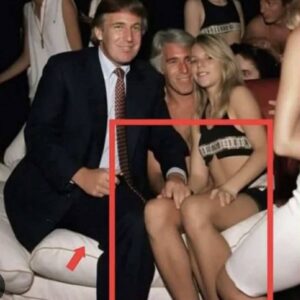The Department of Justice has officially rejected Ghislaine Maxwell’s latest appeal, confirming in a Supreme Court filing that her 20-year conviction for sex trafficking will remain intact. The Supreme Court declined to take up her case, marking the final blow in her long-running legal battle.
Maxwell’s attorneys had petitioned the nation’s highest court earlier this year, arguing that she was unfairly prosecuted due to a 2007 non-prosecution agreement negotiated between federal prosecutors and Jeffrey Epstein in Florida. That deal, they claimed, protected not only Epstein but also “potential co-conspirators,” which they insist should have included Maxwell. The DOJ, however, firmly opposed that interpretation, calling the argument “legally unfounded” and warning that such a broad reading could undermine the justice system’s integrity.
In its brief to the Supreme Court, the DOJ explained that the Florida agreement bound only the U.S. Attorney’s Office for the Southern District of Florida and did not extend to other jurisdictions. Maxwell’s crimes, which took place primarily in New York, were prosecuted by the Southern District of New York — entirely separate from the Florida office. The department emphasized that her prosecution followed “independent evidence, lawful procedures, and appropriate venue.”
The Supreme Court’s refusal to hear Maxwell’s appeal came without comment, a standard practice when justices decide not to review a case. By declining, the Court leaves the Second Circuit Court of Appeals’ ruling in place, which had previously upheld her conviction and rejected all of her legal claims. The appellate judges wrote that the Florida plea deal “did not and could not grant immunity to every potential co-conspirator across the United States.”
This decision effectively closes the door on Maxwell’s legal options. Her lawyers expressed disappointment but vowed to continue seeking alternative remedies, such as habeas corpus motions or a potential request for presidential clemency. Legal analysts, however, believe those avenues are highly unlikely to succeed. Maxwell, now serving her sentence at FCI Tallahassee, will be eligible for release in the early 2040s with good behavior.
The ruling has broader implications beyond Maxwell’s personal fate. Legal scholars note that it reinforces limits on the scope of plea agreements, clarifying that such deals cannot be used as blanket protection for individuals not directly named. It also sends a strong signal that the justice system will not reopen old cases tied to Epstein’s past legal arrangements, which many critics viewed as overly lenient and legally questionable.
For the victims and advocates who have followed the case for years, the Supreme Court’s decision represents a final measure of closure. Maxwell’s conviction — upheld at every judicial level — stands as one of the most high-profile verdicts in recent U.S. history, exposing the scope of Epstein’s exploitation network and the power structures that shielded it for decades. The DOJ’s firm stance underscores a continued effort to demonstrate accountability, even in cases intertwined with privilege, influence, and global attention.
As Ghislaine Maxwell serves her sentence, her attempts to overturn it appear exhausted. The Supreme Court’s silence, paired with the DOJ’s rejection, signals the end of her legal road — and a definitive affirmation that her conviction, and the justice delivered to her victims, will stand.





